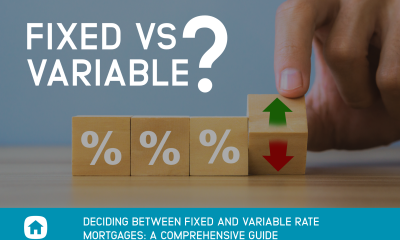TORONTO — Real estate boards across Canada are mulling the release of home sales data online after the Toronto Real Estate Board began permitting such numbers to be published on password-protected websites on Tuesday.
Calgary, Greater Moncton and B.C.’s Fraser Valley were among a handful of real estate boards that said they were looking towards the Greater Toronto Area to decide how their own region should tackle the contentious issue that involved seven years of fighting at three judicial bodies for TREB, which wanted to keep the data under wraps because of privacy and copyright concerns.
The battle, which began after the Competition Bureau alleged in 2011 that preventing the publication of the data was anti-competitive, ended in August when the Supreme Court of Canada refused to hear the case. TREB took a few weeks to work out details around how realtors could publish the numbers before giving them the go-ahead Tuesday.
Alan Tennant, the chief executive officer of the Calgary Real Estate Board, said he watched the case intently, knowing it would likely have ramifications on how his board handled the issue.
CREB, he said, is already doing an analysis of how releasing sales data would impact its policies, but has no intention of fighting the release of the data on password-protected websites like TREB did.
He said it is important the board not rush into releasing the data, but he anticipates its publication in Calgary will be “relatively quick.”
“I don’t see this needing to drag on. I see it as being really straightforward,” he said. “(Real estate boards) are all probably at the same point in wanting to do this right and simply get on with things.”
Like Tennant, Greater Moncton Real Estate Board executive officer George Murray said he paid attention to the TREB case and as a result of it and some inquiries from local realtors in recent weeks, his board has put a discussion on the matter on its Wednesday meeting agenda.
“We recognize the importance of the issue and want to move on it as quickly as possible,” he said, adding that the board is already consulting with lawyers about the implications of making such data available online.
If the board decides to move forward with allowing realtors to publish the data online, Murray said it won’t just copy all of TREB’s specifications, which already bar realtors from scraping, mining, selling, reselling, licensing, reorganizing and monetizing the numbers.
“We have to have our own recommendations from legal counsel and act in our own way to make sure we are doing the best we can to not only be compliant but look after the best interests of the public.”
John Barbisan, the president of the Fraser Valley Real Estate Board in B.C., said he has watched TREB encounter “growing pains” as it figured out how it would allow data to be released.
The board tussled with how to handle historical sold price information where consents were given before websites were in existence and how long listing photos should remain active on a broker’s website after the sale of a property has been completed.
It also had to deal with realtors who rushed to publish the data online immediately following the Supreme Court’s dismissal of the case. TREB ended up sending them cease-and-desist letters, warning it would take away data access and TREB memberships or bring legal action against members it believed were violating its user agreement by posting sales numbers online “in an open and unrestricted fashion.”
Barbisan doesn’t think the issues TREB faced will be different than what his region might encounter, but said his board intends to “take the high road” and look at how it can release the data.
“I am sure it is going to be coming our way and we are making efforts to prepare for it.”
Follow @Tara_Deschamps on Twitter.
Tara Deschamps, The Canadian Press

 Buying a Home5 years ago
Buying a Home5 years ago
 Credit6 years ago
Credit6 years ago
 Business4 years ago
Business4 years ago
 5 Mortgage Secrets7 years ago
5 Mortgage Secrets7 years ago
 Buying a Home6 years ago
Buying a Home6 years ago
 5 Mortgage Secrets6 years ago
5 Mortgage Secrets6 years ago
 News12 months ago
News12 months ago
 Business4 years ago
Business4 years ago





